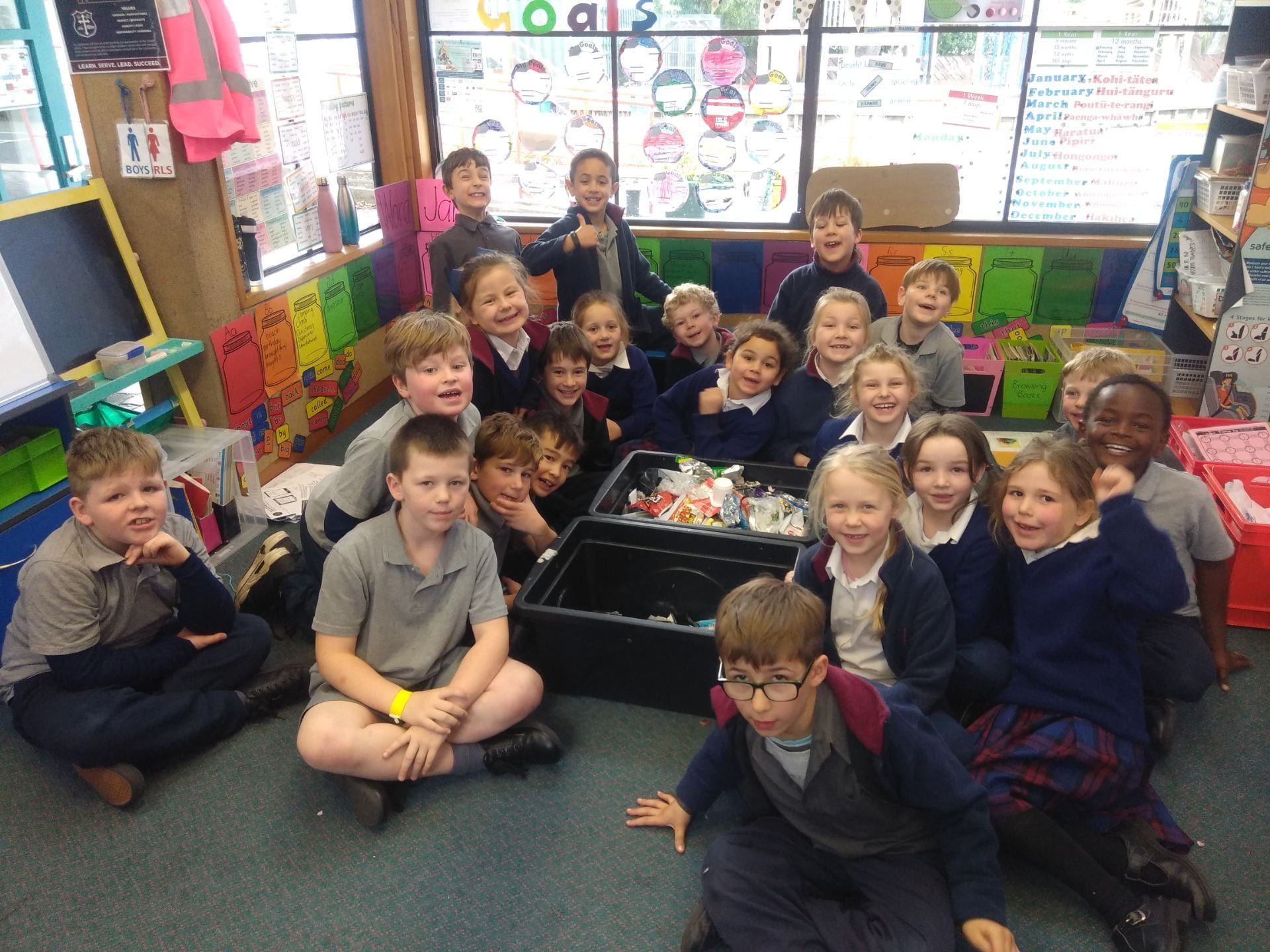The Dunedin City Council arranged an event to promote the reduction of single-use plastic in students’ lunch boxes as part of Plastic Free July 2019. The aim of the project was to engage students and empower them to make a difference by using less plastic. Dunedin City Council provided:
- An information sheet for teachers on how to run the event
- All equipment and resources needed for the workshops, such as irons, beeswax and material
- Facilitation to run a workshop measuring the amount of plastic from a normal lunch day and a discussion around the impact of plastics, including a worksheet-based exercise if visual collection and weighing was not possible
- A workshop for students to make beeswax wraps for students to use
- Facilitation for the follow-up workshop to measure the amount of plastic on the plastic-free lunch day, including a discussion of solutions and alternatives, and a worksheet designed to reveal students’ understanding before and after the discussion
- Celebratory morning tea for the classes with the biggest overall and plastic per student reduction
- Advice on some extra activities the school could do to expand the learning opportunities.

Students with the collected plastic waste from their lunches. Photo credit: Leigh McKenzie.
We finished all of St Francis Xavier School on the programme yesterday (five classes). They went from 128 pieces of plastic to 17 from the whole school! A reduction of 86%! We are seeing lots of the beeswax wraps in their lunches, as well as a lot of parent discussion about plastic-free lunches on the school’s internal platform ‘Seesaw’, and every class has had kids telling me about discussions with their parents, and also seen a big reduction in the quantity of plastic before and after.”
— Leigh McKenzie, Waste Minimisation Officer, Dunedin City Council
This is a great example of how councils can connect with schools as a way of educating the public about the need to reduce how much plastic we use. By providing students with actionable insights on ways to reduce the environmental impacts of single-use plastics, students become empowered to act and share their learnings more widely through their family and community. The ‘before and after’ worksheet illustrated the learnings that students had about the impact of plastic on the environment, which is critical to support long-term changing practices. Initiatives that engage students in thinking about plastic waste are particularly effective if situated within whole school approaches such as Enviroschools that help ensure they are maintained and refreshed on a regular basis. Such programmes also allow schools to be part of networks that help to hold and grow good practices.
Read more about growing sustainability through connection, learning and action
Councils can connect with schools as a way of educating the public about the need to reduce how much plastic we use
